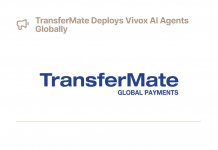Ensuring compliance with sanctions screening is pivotal in risk management for globally operating businesses.
According to Flagright, governments and international bodies enforce sanctions to restrict certain dealings with specific nations, organisations, or individuals. Non-compliance can lead to severe penalties, reputational damage, and legal repercussions. Organisations must have solid sanctions screening protocols to assess their customers, partners, and transactions against various sanctions lists.
Sophisticated tools and technologies are essential for identifying potential matches and executing necessary actions in line with regulatory demands. Proactive compliance with sanctions screening helps businesses protect their operations, maintain stakeholder trust, and showcase a commitment to ethical practices in an interconnected world.
Sanctions screening is critical for protecting against financial crimes and ensuring regulatory adherence, but it presents several challenges:
- The ever-changing sanctions lists require organisations to continuously update their screening processes.
- Navigating complex regulatory landscapes across different jurisdictions adds to the challenge for multinational operations.
- Effective sanctions screening demands ongoing monitoring and due diligence to spot and address suspicious activities.
- Advanced technologies like artificial intelligence and machine learning are becoming indispensable for enhancing screening accuracy and efficiency.
- Collaboration and information sharing among financial institutions and regulatory bodies are crucial in fighting financial crimes effectively.
- Continuous training and education for compliance personnel are vital for handling the complexities of sanctions screening.
The significance of sanctions screening is paramount as financial crimes evolve and regulatory bodies emphasize robust Anti-Money Laundering (AML) and Counter-Terrorist Financing (CTF) controls. Organisations must adopt best practices to ensure compliance and effectively mitigate risks:
- Understand sectoral sanctions and their impacts on various economic sectors.
- Integrate sanctions screening into AML and CTF frameworks to strengthen risk mitigation efforts.
- Implement continuous monitoring strategies, update sanctions lists regularly, and automate screening processes where feasible.
- Prioritise staff training to ensure comprehensive understanding and compliance adherence.
To avoid severe fines and reputational harm, financial institutions and businesses must refine their sanctions screening approaches:
- Develop sound compliance programs with clear policies and regular risk assessments.
- Stay updated on complex and evolving sanctions criteria to ensure the screening program’s effectiveness.
- Use advanced screening services and software equipped with algorithms and AI capabilities to enhance accuracy and efficiency.
Expanding on the importance of robust sanctions screening, it’s essential for organisations to not only meet but exceed regulatory standards, enhancing their reputation and building trust. Engaging with industry peers and participating in sanctions compliance forums are also beneficial for staying informed on regulatory developments and refining screening processes.
Keep up with all the latest FinTech news here.
Copyright © 2024 FinTech Global











